
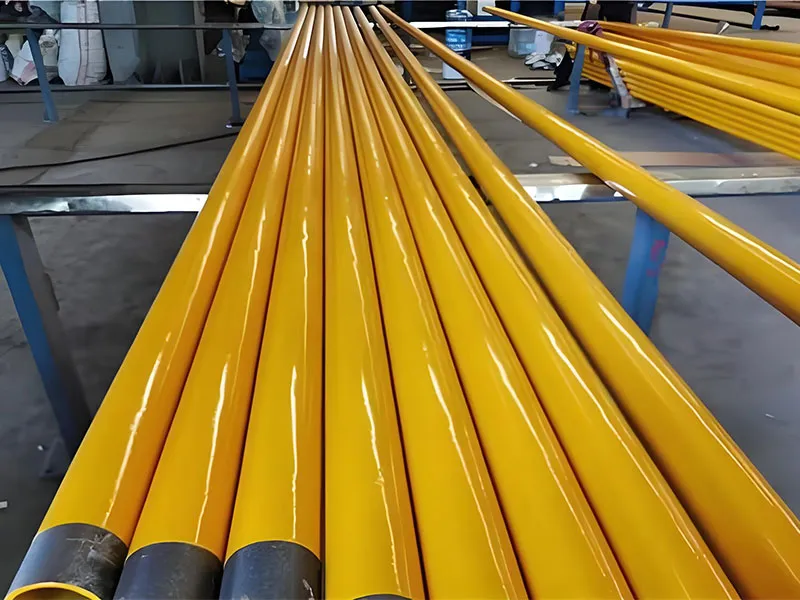
Painting, or brush painting, is a common surface treatment method for steel pipes. It involves applying a layer of paint or coating to the surface of the pipe using brushes, rollers, or spray equipment. The paint acts as a protective barrier, shielding the pipe from environmental factors such as moisture, UV radiation, and chemical exposure. Multiple layers of paint may be applied to enhance durability and corrosion resistance.
Applications
Construction: Painted steel pipes are widely used in building structures, bridges, and scaffolding due to their aesthetic appeal and protection against rust.
Water Supply: Pipes used in water distribution systems are often painted to prevent corrosion caused by water and soil.
Decorative Purposes: Painted pipes are used in furniture, handrails, and decorative installations where appearance is important.
Galvanizing is a process where a protective layer of zinc is applied to the surface of steel pipes to prevent corrosion. This is typically done through hot-dip galvanizing, where the pipe is immersed in molten zinc, or electro-galvanizing, which uses an electric current to bond the zinc coating to the steel. The zinc layer acts as a sacrificial anode, providing long-term protection even if the surface is scratched.
Applications
Outdoor Structures: Galvanized pipes are ideal for outdoor applications such as fencing, street lighting poles, and guardrails due to their excellent resistance to weathering.
Oil and Gas: Used in pipelines and drilling operations where corrosion resistance is critical.
Agriculture: Galvanized pipes are used in irrigation systems and greenhouse frameworks because of their durability in humid environments.
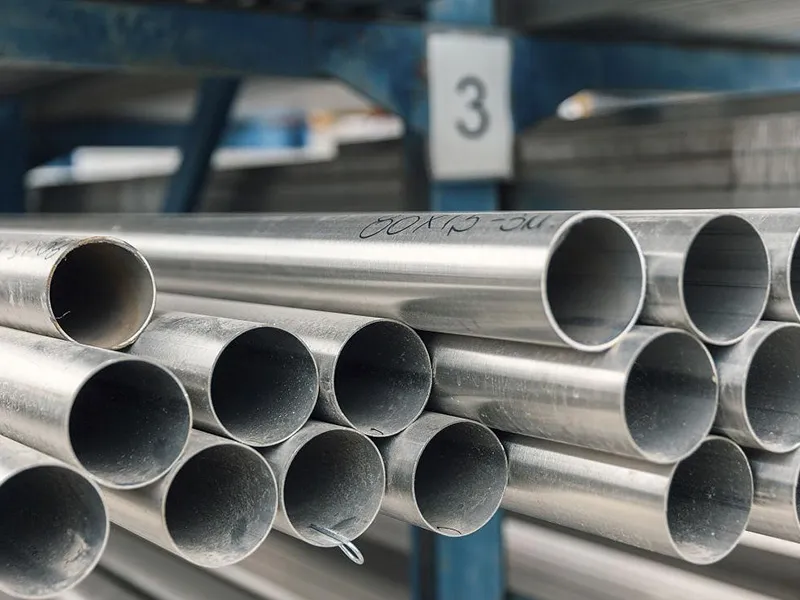
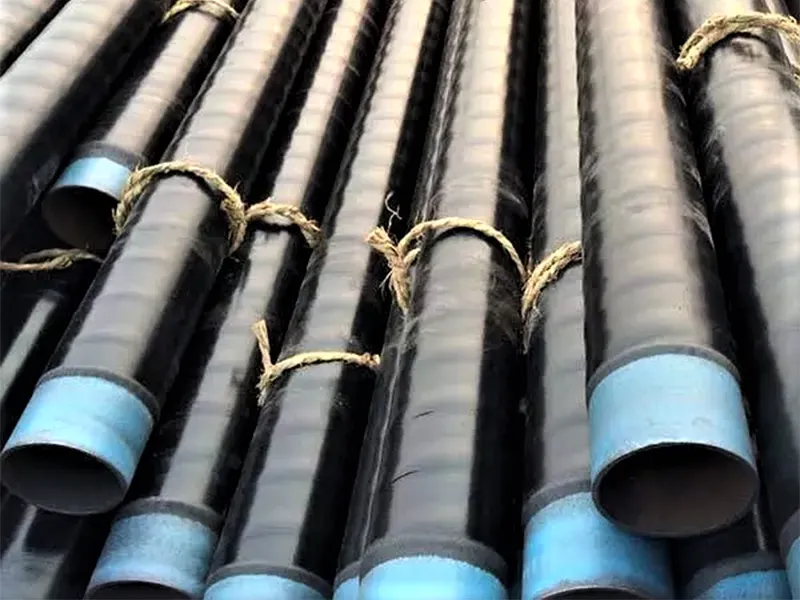
Anti-corrosion coating involves applying specialized materials (e.g., epoxy, polyethylene, or polyurethane) to the surface of steel pipes to protect them from corrosive elements such as water, chemicals, and soil. These coatings are often applied using spraying, wrapping, or powder coating techniques. The thickness and type of coating depend on the intended use and environmental conditions.
Applications
Oil and Gas Pipelines: Anti-corrosion coatings are essential for pipelines transporting oil, gas, and other corrosive fluids, especially in harsh environments like offshore or underground.
Chemical Industry: Used in pipes that handle corrosive chemicals or acids, ensuring long-term reliability and safety.
Marine Applications: Coated pipes are used in shipbuilding and offshore structures where exposure to seawater accelerates corrosion.
Internal Insulation: For certain applications, the inner surface of steel pipes can be coated with insulation materials such as polyurethane foam (PUF), epoxy, or ceramic coatings. These materials are applied using spraying, lining, or casting techniques to create a thermal barrier inside the pipe.
External Insulation: The outer surface of steel pipes is typically insulated with materials like PUF, mineral wool, or foam glass. The insulation is applied by wrapping, spraying, or molding, and is often covered with a protective jacket (e.g., polyethylene, PVC, or metal) to shield it from environmental damage.
Internal Insulation:
Used in pipelines transporting high-temperature fluids (e.g., steam or hot oil) to minimize heat loss and improve energy efficiency. Applied in cryogenic pipelines to prevent heat ingress and maintain low temperatures.
External Insulation:
Widely used in district heating systems, oil and gas pipelines, and HVAC systems to reduce heat loss or gain. Essential for outdoor pipelines exposed to extreme weather conditions.
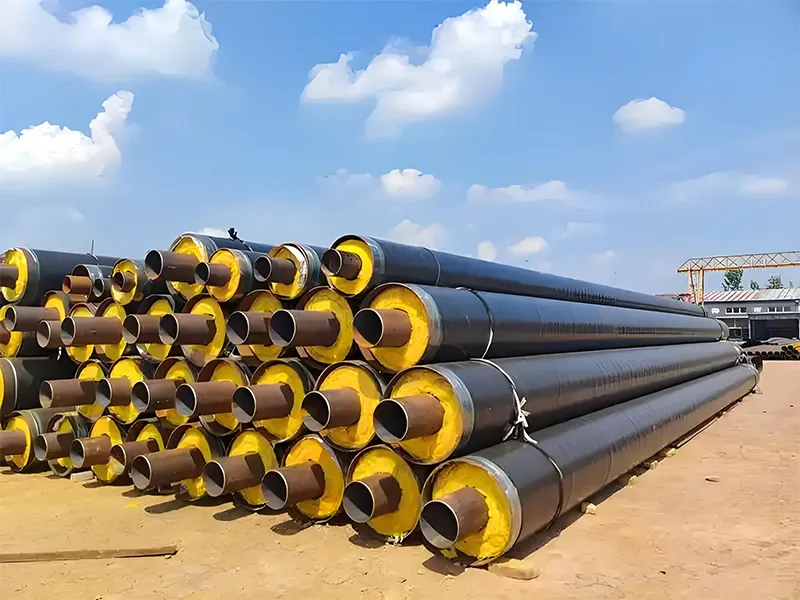
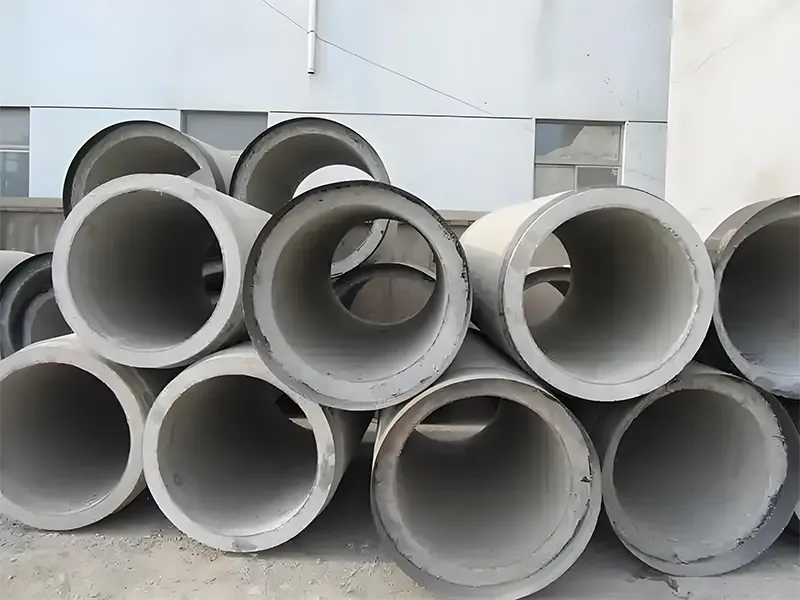
Internal Lining: Cement mortar is applied to the inner surface of steel pipes using centrifugal spinning, spraying, or troweling. The lining is then cured to form a smooth, durable, and corrosion-resistant layer.
External Coating (Rare): While less common, cement mortar can also be applied to the outer surface of pipes for additional protection in specific environments.
Applications
Internal Lining:
Used in water supply and sewage pipelines to prevent corrosion, improve hydraulic efficiency, and extend the pipe's lifespan.
Suitable for transporting potable water, as cement mortar is non-toxic and safe for human contact.